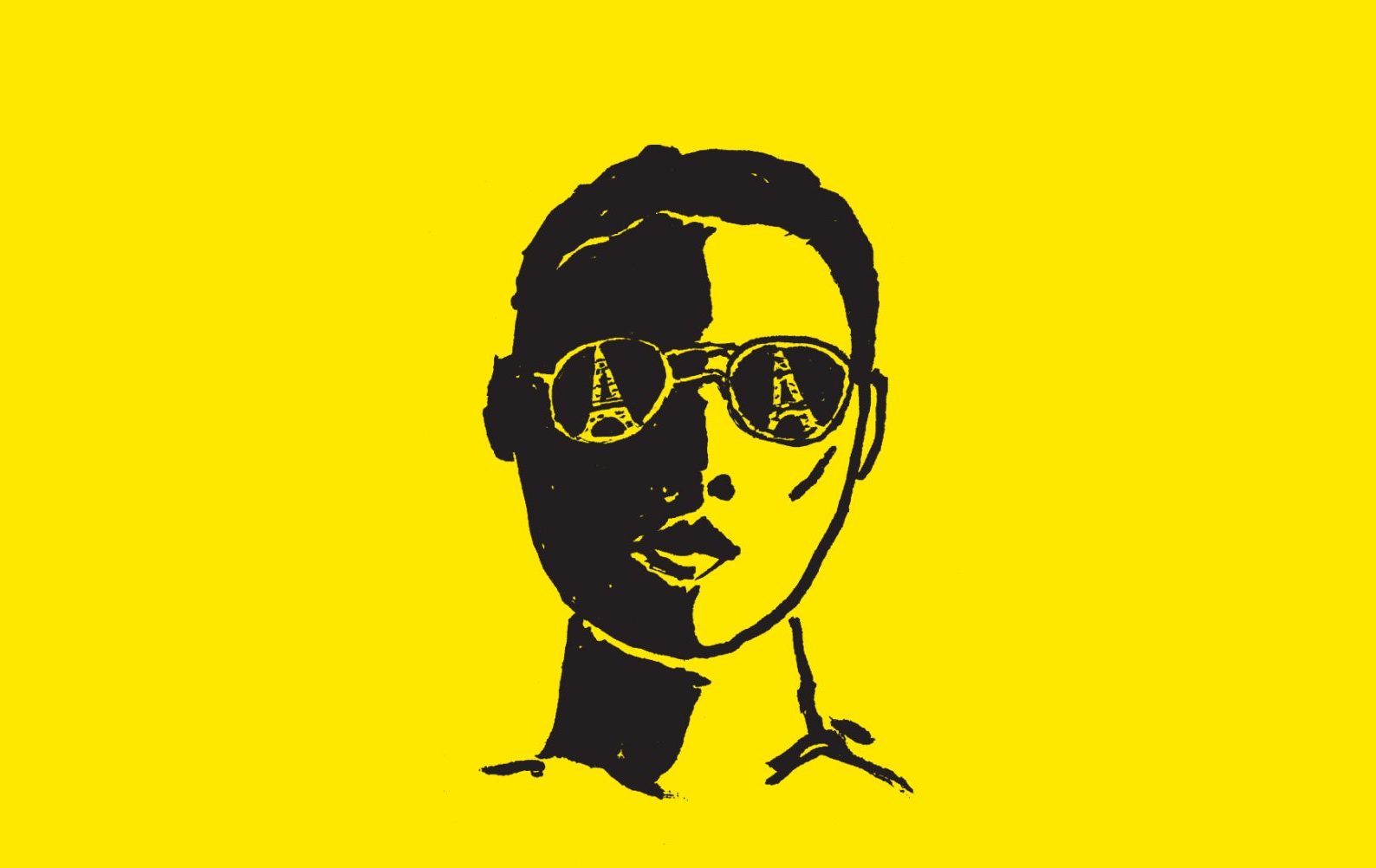Craft
Teen Writers Deserve Better Than the Teen Writing Scene
Trying to be a young phenom was terrible for my self-esteem—and even worse for my writing

A few weeks ago, I spoke on a virtual panel at Phillips Academy Andover called “Life After Teen Writing.” This title might seem confusing—how can there be an after to a life that has barely begun? But for many ambitious young writers, it can be hard to imagine what comes next after you age out of the circuit of high school writing contests.
This wasn’t the first time I’ve spoken on a panel like this—these discussions of what comes next after teen writing are more common than you’d think, given the nicheness of the subject. High school students ask if writers are just as competitive in college, and if the pressure to constantly produce award-worthy work will subside at all. I’m 24 now, but when I speak on these panels, I still feel a sense of urgency, like I’m talking to a past version of myself. I tell the Past Mes that yes, I didn’t win that one competition, and as a high schooler I thought this meant I could never make it as a writer, but I was wrong. I tell them that I, too, was once like them, but then I wasn’t a teen anymore. Now I’m just another writer in her mid-20s, still working to unlearn the harmful habits I developed when I was a high school poet, conditioned to see other writers as competition, convinced that my rejections were a referendum on my self-worth.
I came of age on the internet, so there’s an embarrassingly long digital paper trail of my youth: sappy Arctic Monkeys album reviews, angsty poems, half-baked Twitter hot takes. I wrote an essay called “The Call” seven years ago, soon after I had learned that I didn’t win any awards from the National YoungArts Foundation, the ultimate badge of approval for high school writers. The essay still resurfaces like clockwork when the yearly phone calls go out to notify the handful of winners. I wrote that I was “begging the seemingly impenetrable literary world for validation.”
I discovered other young writers online out of necessity—I didn’t have a high school creative writing class or literary magazine, and when I tried attending local writing workshops, I was the youngest person there by half a century (I grew up in Boca Raton, Florida, a retirement hotspot, so I’m not exaggerating). The internet was the only place I could find a community of writers my age, and when I did, I was horrified to learn that they had all been winning national awards and publishing poems before I even knew that these opportunities for teens existed. With persistence, I wedged myself into the clique.
In these circles, we forgot why we cultivated this community of writers to begin with. We wrote with the purpose of winning teen writing competitions.
In this teen writing world, we founded our own literary magazines like The Adroit Journal and Winter Tangerine Review, which are still reputable publications today. We competed for validation from YoungArts and the Scholastic Art & Writing Awards like it was the Hunger Games, and when we didn’t win, it felt like the world was ending. In these circles, we forgot why we cultivated this community of writers to begin with. We wrote with the purpose of winning teen writing competitions and, again and again, I just wasn’t winning.
I treasured the community of young poets I found online—it made me feel less alone to gush with other teenagers about how much we loved poetry collections like Crush by Richard Siken, or Slow Lightning by Eduardo C. Corral. I learned about writing from my peers as we sent writing back and forth over Facebook messenger, creating a surrogate for the creative writing classes I didn’t have. But I felt as though my inclusion in these circles was conditional. I was experiencing what it’s like to be part of a literary community for the first time, and I didn’t want to go back into isolation. I felt like I had to publish my work and win contests to maintain my place in this selective clique. But as my fellow teen writers continued to earn impressive accolades—like Pushcart Prizes, or publication in The Kenyon Review and Poetry Magazine—I felt like their success was my own failure. I was watching my friends live my dreams, and I was left behind.
The only way to keep up was to change the way I wrote. In high school, I published a poem called “Self-Portrait as a Shard of Glass” in Crab Orchard Review. It’s still one of my most conventionally impressive poetry publications, but to this day, I couldn’t tell you what that poem was supposed to mean. I just wrote down some images that seemed poetic—broken mirrors, featherless birds, restitching a broken seam—and put them into unrhymed couplets, each line approximately the same length. Perhaps the editors who selected the poem saw something in it that I didn’t, but I couldn’t help but feel like a fraud, like I was conforming to a style that wasn’t true to who I was. It was a time when I should’ve been exploring my poetic voice, but instead, I was stifling it.
It was a time when I should’ve been exploring my poetic voice, but instead, I was stifling it.
I couldn’t have sustained this achievement-driven relationship to my writing for long. Sometimes, I feel like my rejection from YoungArts was the best thing that ever happened to me. It forced me to reevaluate why I write in the first place. I remembered why I sought out a community of young writers in the first place: I wanted to feel less alone, to connect with other people my age who loved poetry and stories as much as I did. But I became so obsessed with fitting into a conventional model of success that writing became a burden, rather than a joy. I realized that no prize or publication ever brought me the same joy as being in supportive, collaborative communities with other writers.
My teenage self would be horrified to learn that I still haven’t published a chapbook at age 24, and that I haven’t even published many poems in the last few years. But right now, submitting to publications just isn’t a priority for me. I’m still relearning how to find joy in writing poetry, and I know that there’s no rush to get my work into the world. As a teenager, I spent too much time trying to be good enough, and not enough time trying to be me. But even as I rehabilitate my own relationship to writing, I can’t help but feel uneasy when I see what the teen writing world looks like now, years after I’ve aged out.In the seven years that have passed since I was in high school, the culture we helped create has only gotten worse. Sometimes, teen writers feel so much pressure to succeed that they deem their own work unworthy, opting instead to copy other writers’ work. This is a violation of those writers, but it’s also a troubling abandonment of their own voice. I catch glimpses on Twitter of this new generation of teen writers: a new plagiarism scandal emerges every week, it seems, anonymous accounts leaking detailed documents of undeniable theft from the most decorated teen writers. I wonder if my friends and I are responsible for the monster we built.
In 2015, teacher Jen Karetnick wrote an article called “Behind the Scenes of Teenage Writing Competitions” in The Atlantic. As she put it, “Previously, just a select few, often identified by AP English teachers, would enter these competitions [..] But organizers [of competitions like YoungArts and Scholastic] say teens have been showing much greater interest in the past several years—and the quality of competition is on the rise.”
Some of these contests offer scholarship money, but most winners matriculate at prestigious universities that can cost upwards of $200,000 over four years; a $1,500 prize would be either unnecessary (for the wealthiest students) or not much help (for the rest). For many young, privileged writers, the prestige is more important than the money—and the writers who could use the money usually don’t have the resources to catch a judge’s attention with the delicate prose they crafted at the Iowa Young Writers’ Studio.
The only way to participate in these teen writing circles is to be privileged enough to have either the time or the money to devote to it. I wasn’t a wealthy private school kid who could pay for a creative writing tutor, but I had the time to coach myself—my parents didn’t need me to contribute to family bills by working an after-school job, for example. So, I was able to pour all of my spare time into the intensive study of online literary magazines, decoding how I could emulate certain aesthetics to get published—removing capital letters at the beginning of a line, reformatting poems into Garamond size 11, deleting cliche words like “ribcage” and “wanderlust.” This was how you got people to take you seriously. I lost the genuine spark of raw, teenage emotion that made my writing interesting, but I gained the approval of poetry editors who didn’t know how young I was, or how formulaic my writing had become.
YoungArts charges a submission fee of $35 per entry. With 7,000 entrants, assuming that the majority do not receive fee waivers, this provides the National YoungArts Foundation with at least over $200,000 to operate their program—and that’s without considering the financial contributions of corporate sponsors and individual donors. Scholastic charges $7 per submission and $25 to submit a senior portfolio. There were 320,000 submissions in 2020; depending on how many entrants used fee waivers, the organization is likely raking in over $2 million dollars from teenagers’ submission fees alone.
Now that I’ve worked in administrative roles at arts nonprofits, I agonize over the amazing things that these organizations could be doing with such exorbitant amounts of money. I dream of a teen writing world where these submission fees—or fee waivers—guarantee access to a writing workshop in your state, or even online. I yearn for these organizations to offer support to all creative teens, not just the wealthy and/or especially talented. Instead, only the most elite, and often the most privileged teenagers make it to YoungArts Week in Miami, where they compete against each other for scholarship money that they often don’t need. Or, in Scholastic’s case, national gold medalists can attend a weekend of celebration in New York City, complete with a ceremony at Carnegie Hall featuring guests like Usher and Sarah Jessica Parker. I can’t say I know what the budgets of these organizations look like, and these profit numbers are educated guesses, but I wish they understood the danger of turning writing into an elite sport among young people who are still finding their voice. Most high schools have scant resources for arts education, but with so many thousands of students submitting to these competitions each year, it’s clear that they’re eager for opportunities. But for the 90-something percent of students whose work won’t win these awards, it’s easy to get left behind and lose interest in the arts altogether. Worse, these contests train teenagers to write what they think will win, not what they truly want to write. It’s like learning to write a five-paragraph expository essay for the SAT, except you’re learning to impress one set of judges for one particular poetry or short story contest.
These contests train teenagers to write what they think will win, not what they truly want to write.
I’d love to pin all the blame on these faceless organizations, but even in our own insular communities, we’ve also made everything a competition. We started our own lit mags, which created even more opportunities for teens to face constant rejection. In a blog post published in July 2020, one teen writer reported that 32 youth-run literary magazines had cropped up since the beginning of the pandemic.
I complained to my friend Alexa Derman, also a recovering teen writer, about how frustrating it is that these kids just keep creating new ways to reject each other. Why can’t they just form a workshop group on Zoom? Why is our first instinct always to exclude others? Do these lit mags only exist so the founders have something to put on their college apps?
“I mean, the competitions made us feel powerless,” she told me. “The magazines made us feel powerful. Now you’re in charge, you’re the editor, you get to choose who’s in or out.”
She’s right. I do remember the sensation of being a sixteen-year-old poetry editor, receiving packets on Submittable addressed to “Ms. Silberling.” It was a fleeting sense of control in a time when everything felt unstable—outside of our secret online literary lives, we were all just teenagers trying to figure out who we were and who we wanted to be. I wonder, though, how it would’ve felt to build something that invited writers in, instead of keeping them out.
While writing this, I learned that one of the younger writers who was on the Andover panel with me was outed for plagiarizing other teen writers. To make matters worse, this writer’s success had yielded a six-figure book deal. I know I should be angry, but I’m not. I feel mournful—for the writers whose work was stolen, but also, that this writer felt so much pressure to be prodigious beyond their years that they stole from their peers.
There are still parts of me that are bitter, but the bitterness is no longer directed at other writers—rather, I’m bitter that my most formative years making art were so full of dread and self-hatred.
There will never be a world where literary contests don’t exist. It’s a fact of our circumstances: there’s only so much NEA money to go around. There are only so many spots at each MFA program. There are only so many Ruth Lilly Fellows. But the intensity of the competition and back-stabbing in the teen writing world was unlike anything I’ve experienced since, and that’s a scary foundation on which to build the next generation of writers. As we get older, we realize that there are so many different ways to live a fulfilling life as a writer—that advanced degrees and academic jobs are only one way to make a living. But for isolated high school writers, it feels like winning contests is the only way to gain access to a community. It’s like going to the AWP conference, except you can only attend if you are in the top 1% of writers who bought a ticket.
I wrote in “The Call” seven years ago that “I don’t want to let myself become bitter. I want to continue to be happy for my friend who’s publishing a chapbook, or my friend whose script is being performed in Hollywood.”
There are still parts of me that are bitter, but the bitterness is no longer directed at other writers—rather, I’m bitter that my most formative years making art were so full of dread and self-hatred. But with each year that passes, I become a bit less bitter, and a bit more hopeful.
Last summer, I had the opportunity to teach at a 10-day program for high school writers at the University of Pennsylvania. I read their applications, and I knew that some of the students were just as preoccupied with awards and publications as I had been when I was their age. Others were just teens who wanted to tell stories and had a knack for it. I feel fiercely protective of these students, all of whom I have only met via Zoom.
I hope that they know that their writing matters, regardless of how many Scholastic medals they earn or whether YoungArts takes notice. I hope they know that there is a more joyful relationship with our writing ahead of us, if only we choose it.








